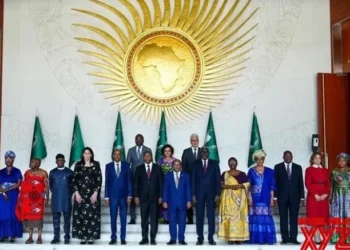Delta variant played a major role in 2nd wave. An additional mutation of this variant, known as ‘Delta Plus’, has been detected and submitted to the global data system. It has been seen in Europe since March and was brought into a public domain on June 13 , said member health NITI Aayog Dr VK Paul.
The Union Health Ministry on Tuesday revealed that the Delta variant with an additional mutation known as “Delta Plus” has been detected in the country that nullifies the use of monoclonal antibody but asserted that it still not a “variant of concern”.
“Delta variant played a major role in 2nd wave. An additional mutation of this variant, known as ‘Delta Plus’, has been detected and submitted to the global data system. It has been seen in Europe since March and was brought into a public domain on June 13”, said member health NITI Aayog Dr VK Paul. Paul asserted that Delta Plus is a “variant of interest” and has not yet been classified as a “variant of concern” and its presence has to be assessed through Indian SARS-CoV-2 Genomic Consortia (INSACOG).
“As per data available in the public domain, this variant nullifies the use of a monoclonal antibody. We will study and learn more about this variant,” he added. Earlier, the World Health Organization (WHO) had renamed the B.1.617.2 variant of the coronavirus, first identified in India, as the ‘Delta variant’.
According to the WHO, in the case of Variants of Concern, a SARS-CoV-2 variant, that meets the definition of a VOI and, through a comparative assessment, has been demonstrated to be associated with one or more of the following changes at a degree of global public health significance– Increase in transmissibility or detrimental change in COVID-19 epidemiology; or increase in virulence or change in clinical disease presentation; or decrease in the effectiveness of public health and social measures or available diagnostics, vaccines, therapeutics. A SARS-CoV-2 isolate is a Variants of Interest (VOI) if, compared to a reference isolate, its genome has mutations with established or suspected phenotypic implications, and either: has been identified to cause community transmission/multiple COVID-19 cases/clusters or has been detected in multiple countries; or is otherwise assessed to be a VOI by WHO in consultation with the WHO SARS-CoV-2 Virus Evolution Working Group, as per the global health body.
However, Paul warned that amid unlocking and the opening up of markets, people should maintain social distancing. “Responsibility and discipline are two important things for unlocking,” he said.
Meanwhile, Joint Secretary (Health) Lav Agarwal said that country has seen a decline in active cases, which are now below 10 lakh after 65 days. “A consistent decline in active cases is being seen, infections are currently at 9.13 lakh, a decrease in active cases by more than 28.3 lakhs,” Agarwal said.
Meanwhile, India reported 60,471 new COVID-19 cases, the lowest count after 75 days, while the daily positivity rate further dropped to 3.45 per cent, according to the Ministry of Health and Family Welfare on Tuesday. The daily positivity rate is below 5 per cent for 8 consecutive days. The active cases further declined to 9,13,378, taking the weekly positivity rate at 4.39 per cent, while the national COVID-19 recovery rate has improved to 95.64 per cent. With the fresh cases, the country’s tally of cases has climbed to 2,95,70,881, as per Union Health Ministry.























